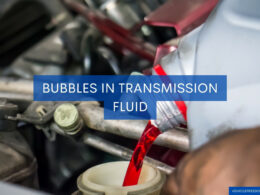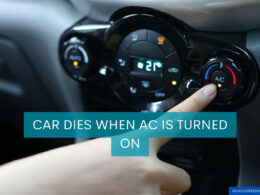In This Article Show
In my experience as a professional mechanic and automotive writer, I’ve seen many issues that can affect your car’s performance. One common problem drivers often face is when their car jerks or stutters during acceleration.
This issue not only disrupts a smooth ride but also signals possible underlying issues that can potentially lead to serious damage if ignored. In the past, we’ve written about car jerking when slowing down issues, but today, we’re answering the question, “Why does my car jerk when I accelerate?”
When your car jerks while accelerating, it’s an indicator that something’s not quite right in its internal system. It could be related to the fuel system, a fault in the ignition system, a transmission glitch, or even a clogged air filter. These are some of the causes we’ll explore in depth in this article.
This blog post discusses common causes and fixes for a car jerking when accelerating. We’ll guide you on how to identify the symptoms, diagnose the problem, and when to seek professional help when needed.

Understanding Car Jerking
When we talk about a car that jerks while accelerating, we’re referring to an issue where the vehicle unexpectedly jolts, bucks, or shakes during acceleration. A noticeable drop in acceleration power often accompanies it and may be intermittent or persistent.
This jerking can be felt in varying degrees – sometimes, it’s a slight tug, and at other times, it can be a strong jerk that shakes the entire car. Regardless of the intensity, it’s important to note that any level of jerking during acceleration is abnormal and warrants attention.
Jerking disrupts the vehicle’s smooth operation and can make your driving experience less enjoyable. It might even make you feel unsafe on the road. But beyond comfort and safety concerns, a jerking car can also indicate deeper issues within your car’s systems.
These could include problems with your fuel system, ignition system failures, transmission issues, or dirty or defective air filters. These can harm your vehicle’s overall performance and longevity if left unresolved.
Common Causes of Car Jerking
Understanding the root cause of your car jerking while accelerating is essential in addressing the issue effectively. A car is an intricate machine with numerous interconnected systems and components working together for smooth operation.
A disruption or fault in any of these parts can lead to noticeable changes in the car’s performance, including jerking during acceleration.
Now, let’s examine the potential causes of this jerking motion, broken down into categories based on the various systems in your car.
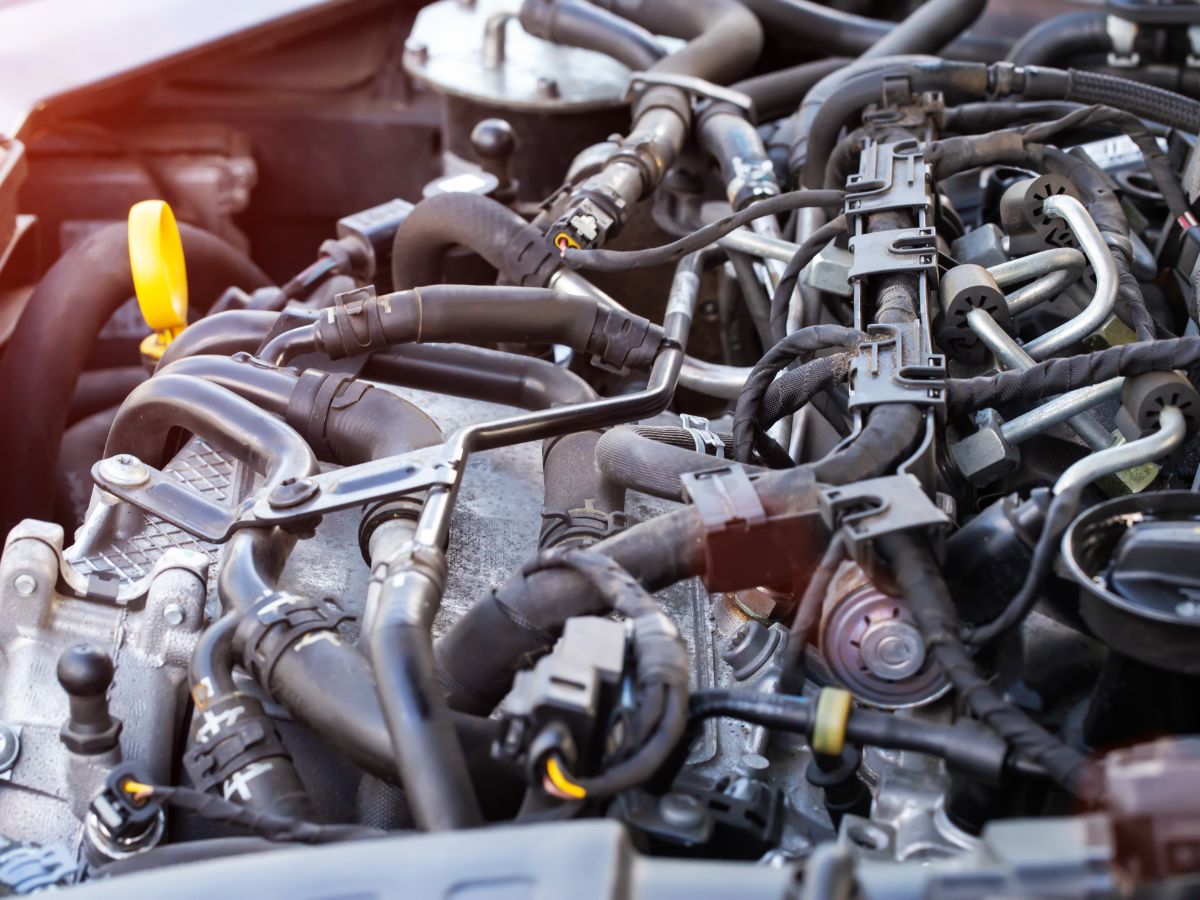
1. Fuel System Issues
Your car’s fuel system is responsible for storing and supplying the fuel your engine needs. It includes several components such as the fuel tank, pump, lines, and injectors. When this system runs smoothly, your car operates efficiently. However, when issues arise in this system, it can cause your car to jerk.
- Clogged fuel lines or dirty fuel injectors: Deposits and dirt can accumulate over time in your fuel lines or injectors, hindering the smooth flow of fuel to your engine. This disruption in the fuel supply can cause an uneven response from the engine, leading to jerking when you try to accelerate.
- Low fuel pressure: Fuel pressure is crucial for the right amount of fuel to reach the engine. If the pressure is too low, the engine may not receive enough fuel, causing it to jerk or hesitate when you press the accelerator.
2. Ignition System Failures
The ignition system of your car is what sparks the combustion process, powering the engine and propelling your vehicle forward. Any issues in this system can lead to your car jerking during acceleration.
- Faulty spark plugs or ignition coils: Spark plugs are crucial in igniting the air-fuel mixture in the engine. If they are faulty or worn out, they might not ignite the mixture efficiently, causing the engine to misfire and resulting in a jerking motion. Similarly, ignition coils, which provide the spark plugs with high voltage electricity, can cause jerking if they fail.
- Ignition timing issues: Your car’s ignition system is timed to ensure the spark plugs fire at the right moment. If this timing is off, it can cause your engine to misfire or run inefficiently, leading to a jerking sensation when accelerating.
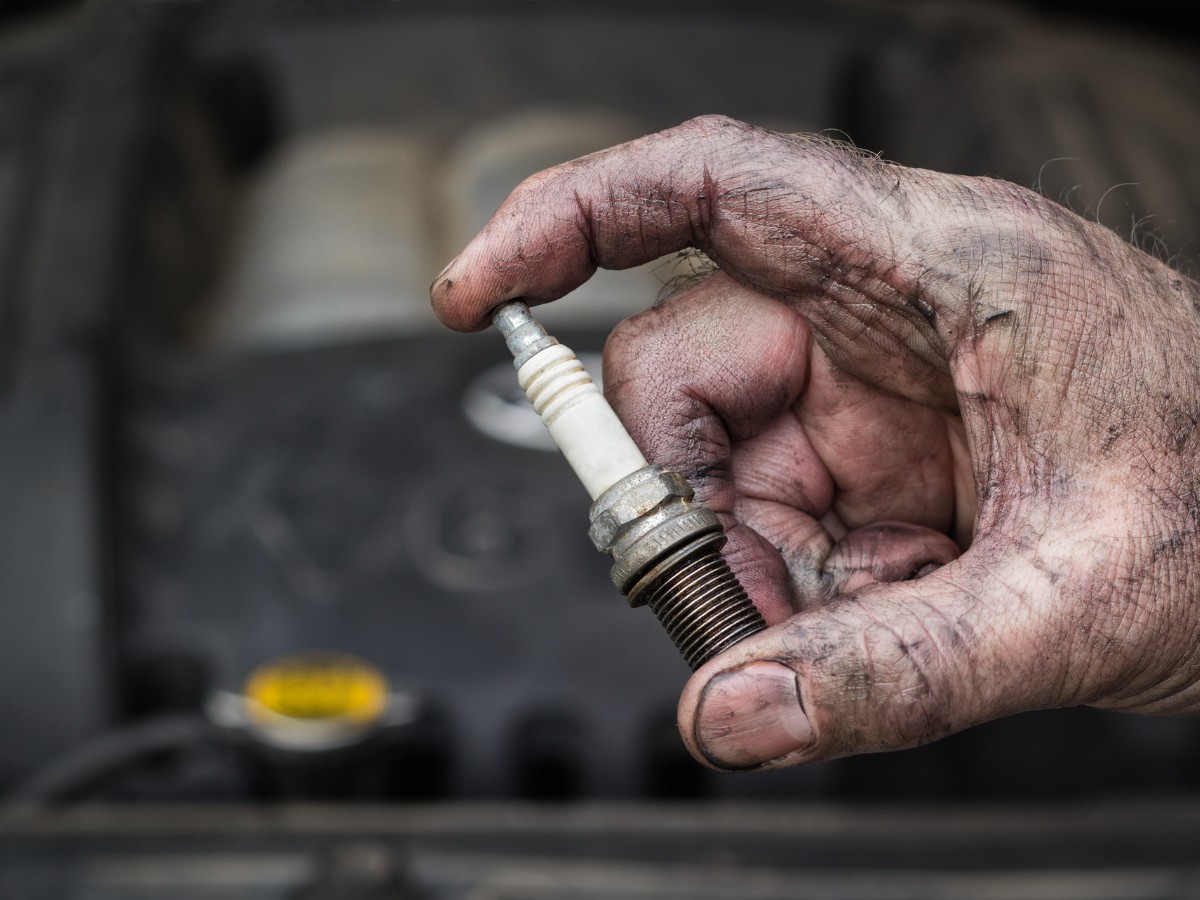
3. Transmission Issues
Your car’s transmission system transfers power from the engine to the wheels. Any faults in this system can cause issues in the power delivery, including a jerking motion when accelerating.
- Worn-out gears: Over time, the gears in your transmission can wear out. If the wear is significant, it can cause the transmission to slip out of gear during acceleration, leading to a jerking motion.
- Transmission fluid issues: The transmission fluid lubricates the moving parts. If the fluid is low, old, or contaminated, it can cause the transmission to malfunction, which may manifest as jerking when you press the accelerator.
4. Dirty or Defective Air Filters
Your car’s air filter ensures that the air entering your engine is clean and debris-free.
If the filter becomes dirty or clogged, it can restrict airflow to the engine. This can cause an imbalance in the air-fuel mixture, leading to uneven combustion and a jerking motion when accelerating.
These are some of the common causes of a car jerking when accelerating. Next, we’ll review some signs to look out for that might indicate your car is experiencing this problem.
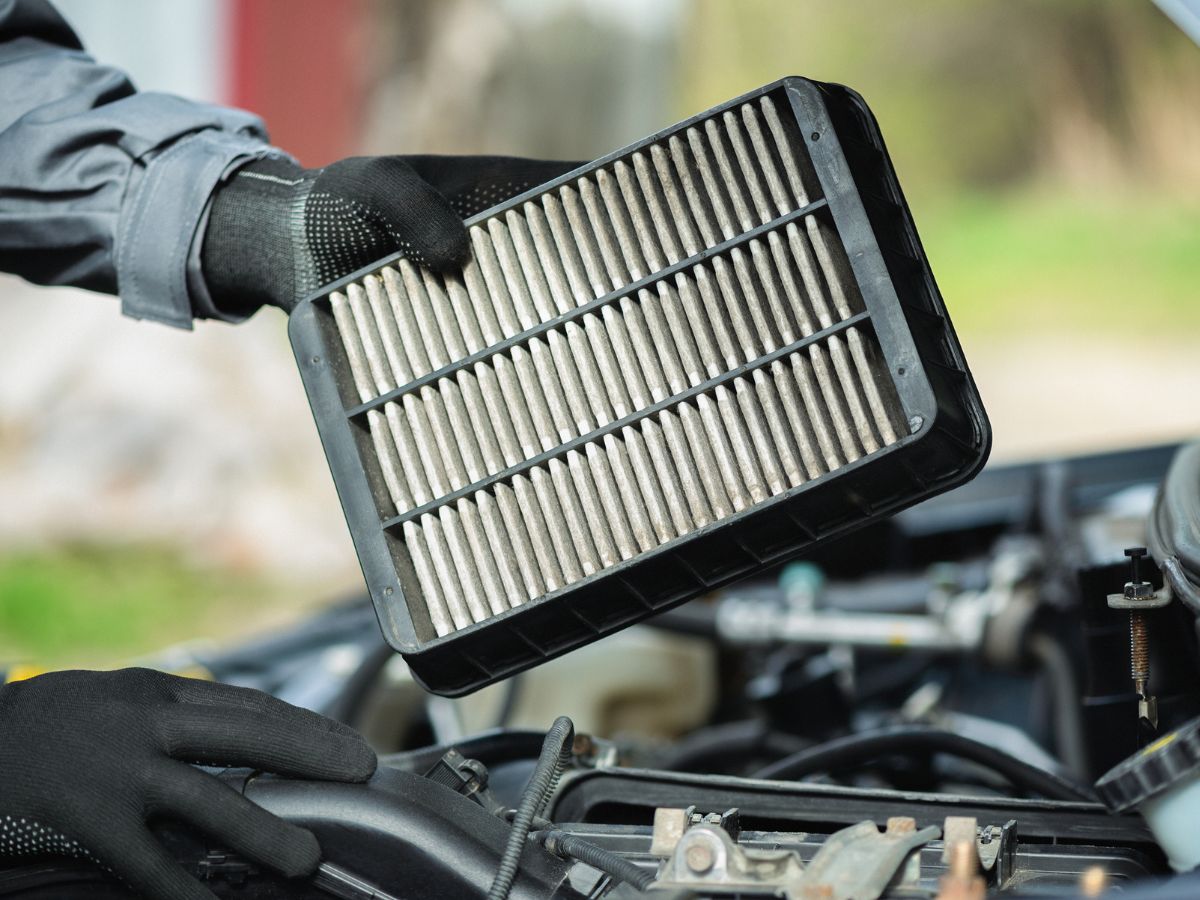
Signs That Your Car Might Be Experiencing This Problem
Identifying a problem early can often prevent it from escalating into a more serious issue. Therefore, being aware of the symptoms that might indicate your car is experiencing jerking during acceleration is crucial. Here are some signs to look out for:
- Uneven Acceleration: One of the most obvious signs is an uneven or shaky acceleration. If you notice that your car is not accelerating smoothly and is jerking or hesitating, it could indicate a problem.
- Loss of Power: A sudden loss of power while you’re driving or attempting to accelerate could mean there’s an issue causing your car to jerk.
- Unusual Noises: Sometimes, a car jerking problem might be accompanied by unusual noises, such as sputtering or knocking sounds from the engine.
- Engine Warning Lights: Your car’s onboard computer system can detect many issues. If there’s a problem causing the car to jerk when accelerating, it might trigger the “Check Engine” or other warning lights on your dashboard.
- Reduced Fuel Efficiency: Problems causing your car to jerk during acceleration can also affect its fuel efficiency. If you notice that you’re getting fewer miles per gallon than usual, it could be due to an issue within the fuel, ignition, transmission system, or air filters.
Remember, these are signs, not definitive proofs of an issue. If you observe any of these symptoms, it’s advisable to investigate further or seek professional help to diagnose the exact cause.
How to Diagnose Car Jerking When Accelerating
Properly diagnosing the issue is the first step towards resolving it. While some causes of car jerking might be straightforward to identify, others may require a more comprehensive approach or even a professional mechanic’s help.
Here’s a step-by-step process to diagnose the specific cause of the issue:
1. Check Warning Lights
Start by checking if any warning lights are illuminated on your dashboard. If the “Check Engine” light or any other warning light is on, it can provide a clue about the system or component causing the issue.
2. Listen for Noises
Unusual noises from your engine, like knocking, sputtering, or whining sounds, can indicate a specific issue. Note any such sounds and when they occur – this information can be helpful in the diagnostic process.
3. Inspect the Fuel System
Check for any visible issues in your fuel system, such as leaks or damage. You can also try adding a fuel system cleaner to your gas tank, which can help clear minor clogs or deposits.
4. Check the Ignition System
Inspect your spark plugs and ignition coils for any visible damage or wear. If you’re comfortable doing so, test your spark plugs and ignition coils using a spark tester.
5. Inspect the Transmission System
Check the level and color of your transmission fluid. Low fluid level or dark, burnt-looking fluid can indicate a transmission problem. Also, pay attention to how your car shifts gears – difficulty shifting or staying in gear can indicate a transmission issue.
6. Check the Air Filter
A dirty or clogged air filter can restrict airflow to your engine, causing it to jerk during acceleration. Check your air filter and replace it if it’s dirty or clogged.
If you’re not comfortable performing these checks yourself or if the cause of the issue is not readily apparent, it’s always best to seek professional help. Ignoring or misdiagnosing the problem could potentially lead to more serious damage to your vehicle.
Common Fixes for Car Jerking When Accelerating
Once you’ve diagnosed the problem, it’s time to address it. Here are some common fixes based on the cause of the car jerking:
1. Fuel System Fixes
- Clean or replace fuel injectors: If your fuel injectors are dirty or clogged, cleaning them might solve the issue. There are fuel injector cleaners available that you can add to your gas tank. However, if the injectors are severely clogged or damaged, they might need to be replaced.
- Check and replace fuel filter: A clogged fuel filter can restrict the flow of fuel to your engine, causing your car to jerk when accelerating. Check your fuel filter and replace it if necessary.
- Fix fuel pressure issues: If low fuel pressure is causing the issue, it may be due to a faulty fuel pump or fuel pressure regulator. These components might need to be tested and replaced if faulty.
2. Ignition System Fixes
- Replace faulty spark plugs or ignition coils: If your spark plugs or ignition coils are faulty, replacing them should resolve the issue. This is a relatively straightforward process that many car owners can do themselves, but if you’re unsure, it’s always best to seek professional help.
- Correct ignition timing: If your ignition timing is off, it might require a professional mechanic to adjust it. This is because ignition timing adjustment typically requires specialized equipment and knowledge.
3. Transmission Fixes
- Replace worn-out gears: If your transmission gears are worn out, they will likely need to be replaced. This is a complex job that a professional mechanic should do.
- Change transmission fluid: If your transmission fluid is low, old, or contaminated, changing it might resolve the issue. If you’re comfortable doing so, you can change the transmission fluid yourself. Otherwise, a professional mechanic can do it for you.
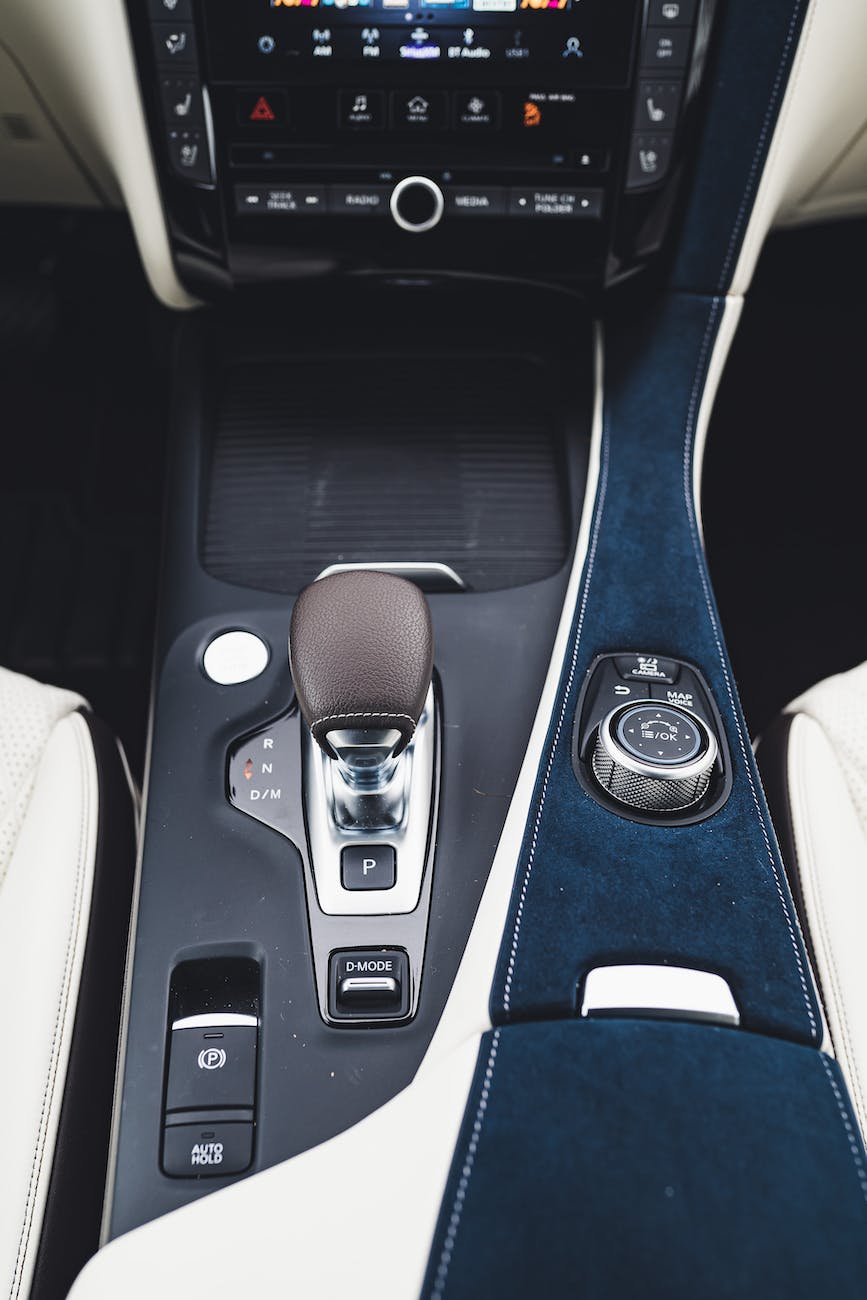
4. Air Filter Fixes
Clean or replace air filters: If your air filter is dirty or clogged, cleaning it might resolve the issue. If the filter is severely clogged or damaged, it must be replaced.
These fixes can help resolve the problem of a car jerking when accelerating. However, if you’re unsure about any of these steps, it’s always best to consult a professional mechanic to avoid causing further damage to your vehicle.
Wrapping it up
Understanding and addressing car jerking during acceleration is crucial for a smooth and safe driving experience. With various potential causes – from fuel system issues, ignition system failures, and transmission issues, to dirty or defective air filters – it’s essential to properly diagnose the root cause before jumping to fixes.
This article aims to give you a comprehensive understanding of why your car might jerk when accelerating, how to identify the signs, diagnose the issue, and some common fixes based on the root cause.
Whether you’re a car enthusiast who enjoys DIY fixes or prefer leaving it to the professionals, knowing what’s happening under the hood is always beneficial.
While minor issues can sometimes be addressed with simple fixes, some problems require professional expertise. Don’t hesitate to seek professional help when needed. Ignoring or improperly handling these issues can lead to more serious problems.









